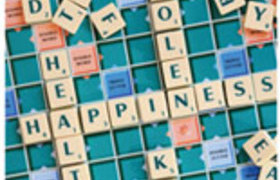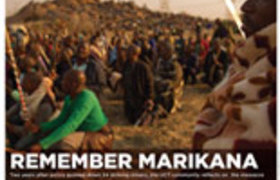Just in time
25 March 2015Have a look at our timeline of UCT law staff and students who have been contributing to justice in South Africa over the years.
1859
The first law lecture in South Africa is delivered on 16 April at the South African College, which would later become UCT.
1919
First LLB degree from the University of Cape Town is awarded.
1962
Civil rights leader and UCT alumna Cissie Gool becomes the first coloured female law graduate in South Africa, and the first to be called to the Cape Bar.
1964
Responsa Meridiana, an annual law journal and the collaborative effort of law students from the Universities of Cape Town and Stellenbosch, is first published.
1972
The UCT Legal Clinic, the predecessor of the current Law Clinic, is established.
1977
UCT's Institute of Criminology is established; in 2007, the core focus of the institute becomes African security and justice.
1981
Nicola Peart becomes the first woman to obtain a Master's in Law (LLM) at UCT.
1983
The Institute of Marine and Environmental Law, the largest and oldest unit of its kind in Africa, is founded initially as the Institute of Marine Law.
1985
A UCT-led research project into emergency law provides a resource for South Africans to know their rights under a state of emergency, after one is declared on 21 July.
1986
The legal education action project (LEAP) is established to provide legal support and representation for rural people of the old Cape Province affected by emergency rule.
1987
The Institute of Development and Labour Law is started, as the Labour Law Unit. In 1992, its focus shifts to development law issues, such as land, housing, and small and medium enterprises.
1990
Law alumnus Albie Sachs delivers his first public lecture at UCT, on his return from exile.
1991
After a long legal battle that started in 1986, a team that includes UCT alumni Andrea Durbach and Anton Lubowski as well as Prof Martin West succeeds in getting the murder conviction of 21 of the Upington 25 overturned, and all their death sentences commuted.
1993
Prof Hugh Corder is appointed to the committee drafting the Bill of Rights in the interim Constitution.
1993
Faculty members establish the Law, Race and Gender Research Unit, which would later become the Centre for Law and Society. Its mission is to understand the role of race and gender bias in the administration of justice, and to train judicial officers to be able to fulfil their functions in a diverse society.
1994
Law alumnus Dullah Omar is appointed as the first minister of justice in a democratic South Africa.
1994
Christina Murray is seconded to the committee overseeing the drafting of the Constitution.
1994
UCT alumna and law faculty member Kate O'Regan and alumni John Didcott and Albie Sachs are appointed to the first Constitutional Court.
1995
Prof Halton Cheadle is appointed convener of the team that drafts the Labour Relations Act.
1998
The Refugee Rights Unit is established to provide legal aid and support to refugees and asylum seekers in South Africa.
2001
The Oliver Tambo Moot Court in the Kramer Law Building is opened by Dali Tambo, who attended the function with his mother Adelaide Tambo.
2004
The Democratic Governance and Rights Unit is founded to facilitate an intellectual space to think through solutions that promote public accountability and the rule of law.
2005
UCT requires its LLB students do 60 hours of community service before their degrees are awarded.
2007
The Intellectual Property Research Unit is founded to enable the participation of developing countries in the evolution of intellectual property policy and law systems.
2007
UCT law students found the society Students for Law and Social Justice (SLSJ), which subsequently becomes a national organisation.
2008
The law faculty funds the translation of the Universal Declaration of the Human Rights into Venda.
2012
The Centre for Comparative Law in Africa is established, to build research and teaching capacity on the African continent, and thereby support the university's Afropolitan initiatives.
|
|
 This work is licensed under a Creative Commons Attribution-NoDerivatives 4.0 International License.
This work is licensed under a Creative Commons Attribution-NoDerivatives 4.0 International License.
Please view the republishing articles page for more information.
Feature
Faculty Focus - Law
Editorial
Photo Essay
Front page
Previous Editions










